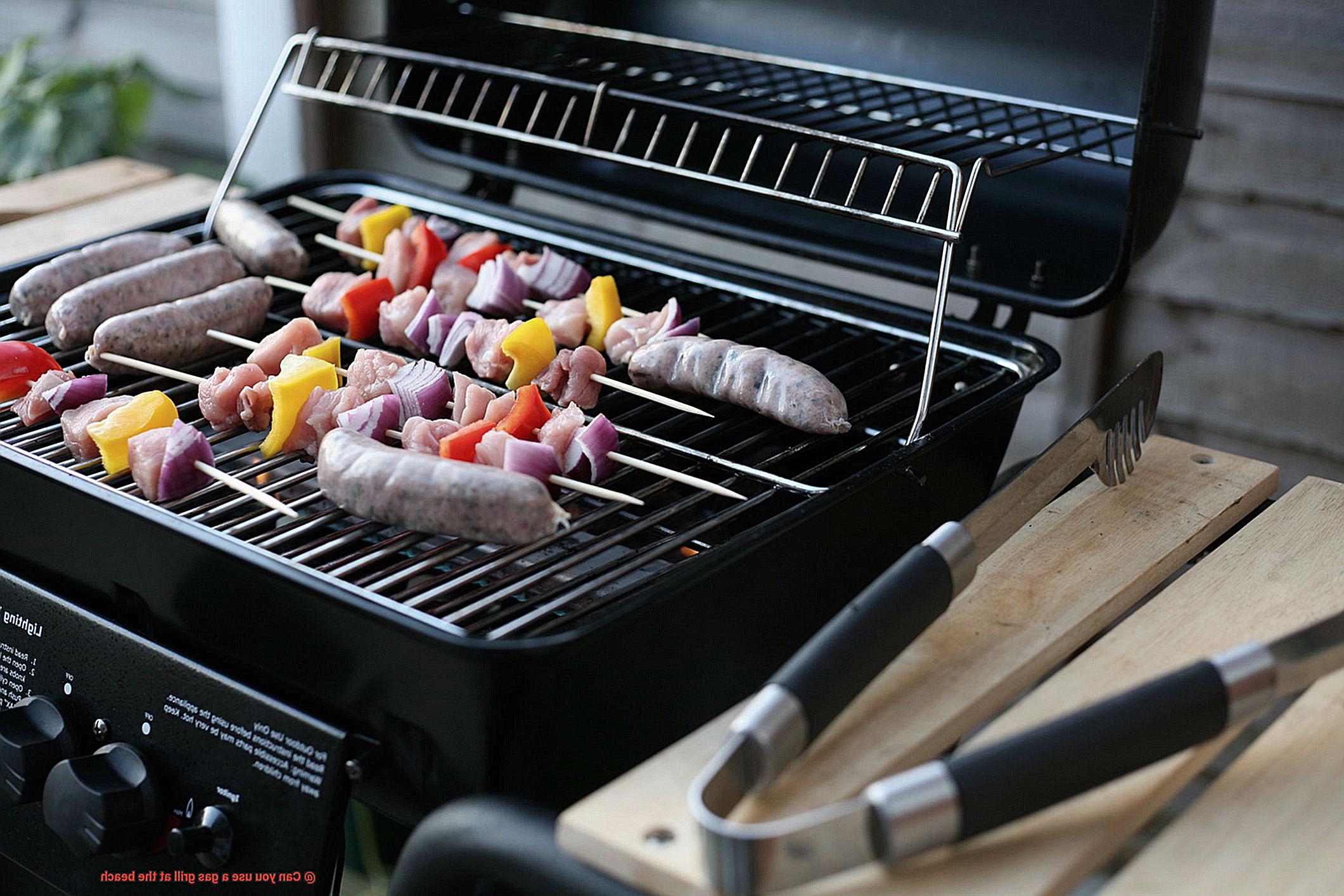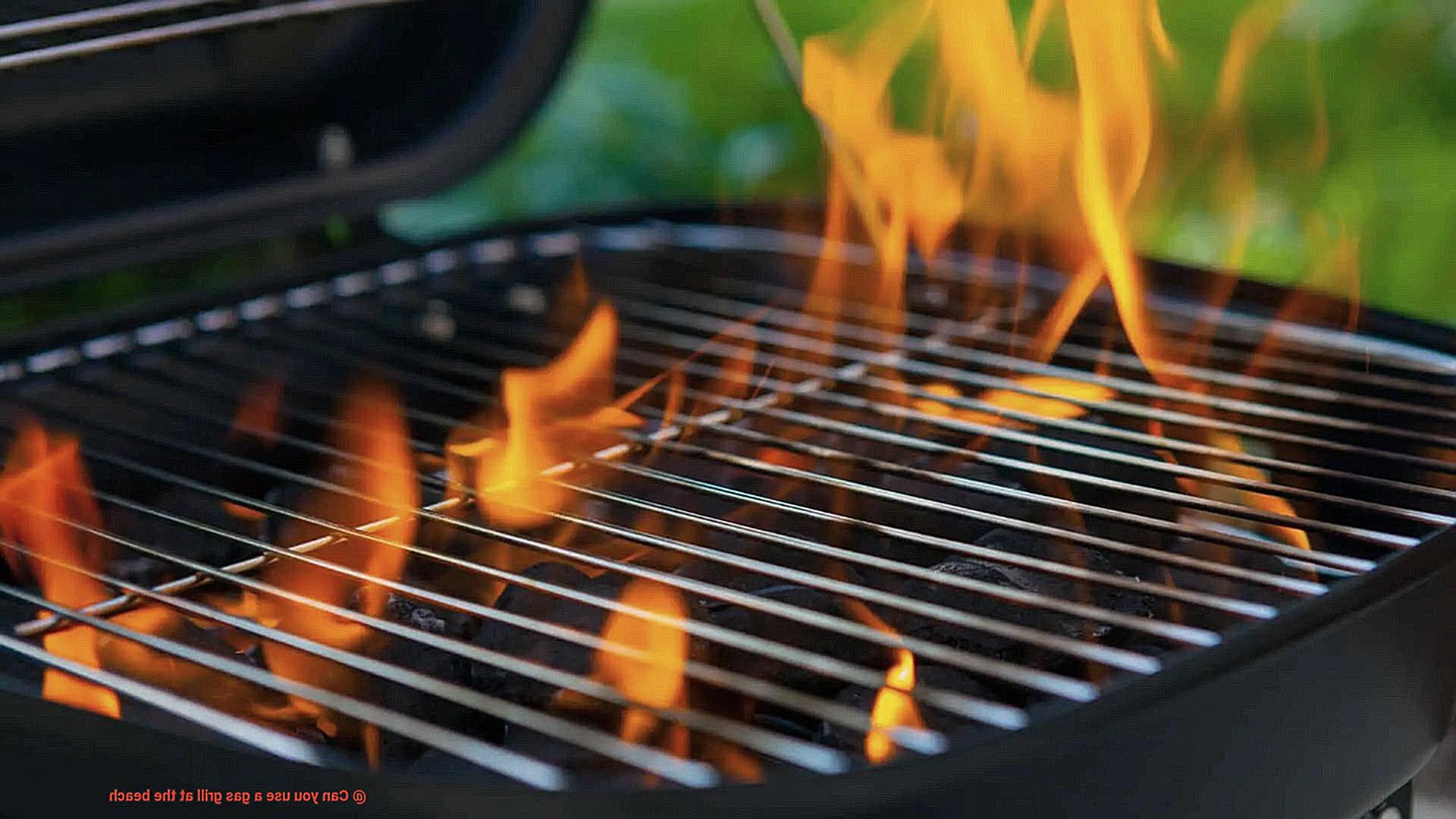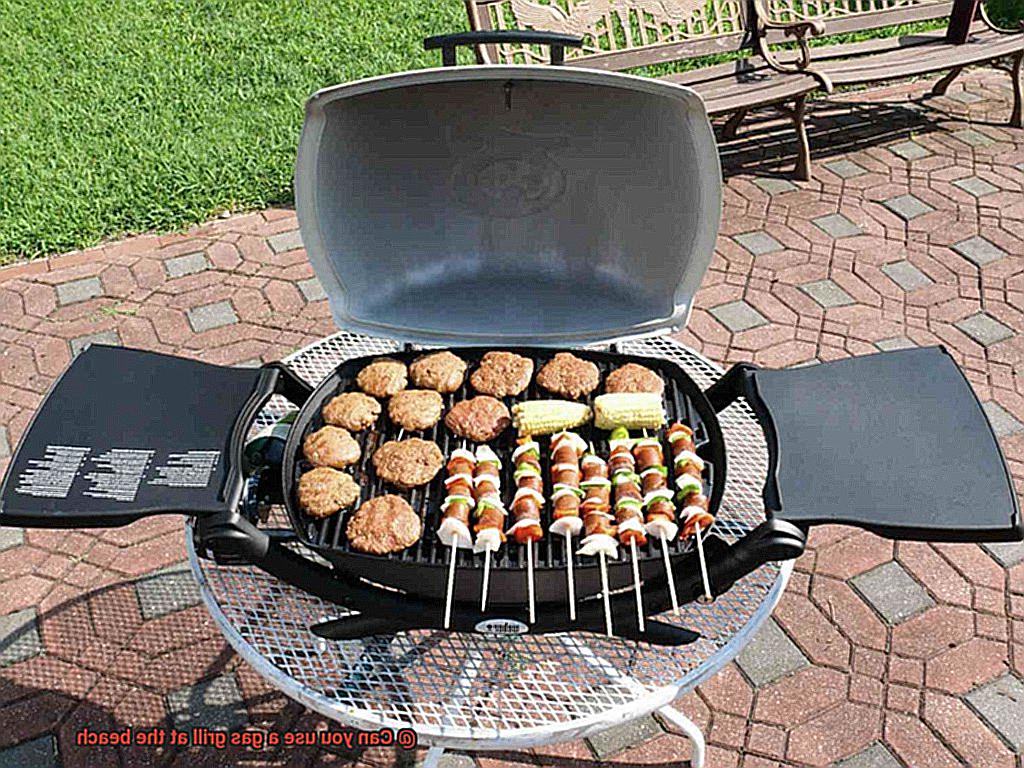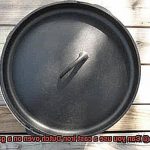Are you ready to hit the beach and fire up the grill for a mouth-watering meal? The sun is shining, the waves are crashing, and your cooler is packed with all your favorite snacks and drinks. But before you start flipping burgers, there’s one important question to ask: can you use a gas grill at the beach?
Grilling at the beach is a beloved tradition for many, but it’s not as simple as just bringing along your trusty grill. There are rules and regulations to follow, and safety should always be top of mind. After all, nobody wants their fun day in the sun to turn into a dangerous situation.
In this blog post, we’ll dive into everything you need to know about using a gas grill at the beach. From understanding local laws and restrictions to making sure your setup is safe and secure, we’ve got you covered. Whether you’re an experienced beach griller or a first-timer looking for tips, we’re here to help make sure your day by the shore is both delicious and safe. So grab your sunscreen, put on your flip flops, and let’s get grilling.
Contents
What Are the Rules for Grilling at the Beach?
Grilling at the beach is an excellent way to spend time with loved ones while enjoying the outdoors. However, before you start barbecuing, it’s crucial to follow specific rules and regulations to ensure a safe and enjoyable experience.
Firstly, always check with local authorities about any restrictions or permits required for grilling on the beach. Some beaches may prohibit grilling altogether, while others may require a permit or have designated grilling areas. By doing this, you can avoid fines or penalties and ensure a stress-free day at the beach.
Once you’ve confirmed that grilling is allowed, focus on safety measures. Keep your grill away from any flammable materials and use a sturdy base or stand to prevent it from tipping over on the sand. Also, bring a fire extinguisher and a spray bottle filled with water in case of emergencies.
Disposing of hot coals is another essential safety measure. Always let them cool entirely before disposing of them in a designated coal bin or trash receptacle, never dump them directly onto the beach. This helps prevent serious burns or starting fires.
In addition to safety measures, remember to prioritize environmental responsibility when grilling at the beach. Keep a safe distance from any flammable materials, such as beach umbrellas or dry brush, and use a grill designed for outdoor use with a secure lid to prevent sparks or embers from flying out.
To summarize, here are some rules for grilling at the beach:
- Check with local authorities about any restrictions or permits required for grilling on the beach.
- Keep your grill away from flammable materials and use a sturdy base to prevent it from tipping over.
- Bring a fire extinguisher and a spray bottle filled with water in case of emergencies.
- Let hot coals cool entirely before disposing of them in a designated coal bin or trash receptacle.
- Use a grill designed for outdoor use with a secure lid to prevent sparks or embers from flying out.
- Be mindful of other beachgoers and prioritize environmental responsibility.
Is it Safe to Use a Gas Grill at the Beach?
It’s crucial to prioritize safety while having fun. As an expert on the topic, I’m here to guide you on how to grill like a pro while keeping safety in mind.
Before you pack up your gas grill and head to the shore, make sure to check if grilling is allowed at the beach you plan to visit. Different beaches have different rules and regulations, so it’s always better to be safe than sorry. Once you’ve got the green light, choose a flat surface away from any flammable materials like grass or brush. This will prevent any fire hazards and keep other beachgoers safe.

It’s also essential to avoid placing your grill too close to other beachgoers or structures such as picnic tables or lifeguard towers. This will prevent any accidental mishaps and allow others to enjoy their day at the beach safely.
Another crucial safety precaution when using a gas grill at the beach is properly securing and stabilizing your propane tank. A loose propane tank can easily tip over and cause an explosion or fire. So, check that everything is securely in place before firing up your grill.
It’s always better to be prepared for any emergencies. So, keep a fire extinguisher or bucket of water nearby in case of any accidents or emergencies.
Lastly, never leave your grill unattended while it’s in use. It’s easy for things to get out of control when you’re not paying attention, so always keep an eye on your grill.
Tips for Using a Gas Grill at the Beach
Grilling at the beach can be a delightful experience, but it requires careful planning and attention to safety. Whether you’re a grilling pro or a first-timer, here are some tips to help make sure your beach barbeque is a success.
Check with Local Authorities
Before you pack up your grill and head to the beach, it’s essential to check with local authorities about any regulations or restrictions on open flames. Different beaches may have different requirements, so make sure you are aware of them before heading out.
Choose a Safe Location
Once you’ve confirmed that grilling is allowed, it’s time to choose a safe location for your grill. Make sure you set up your grill away from any flammable materials such as dry grass or driftwood. It’s also important to position your grill in an area with plenty of open space around it. Wind can be unpredictable at the beach, so try to find a sheltered spot if possible. Also, keep a fire extinguisher or bucket of water nearby in case of emergency.
Keep Your Grill Clean and Well-Maintained
Sand and saltwater can cause damage to your grill, so it’s essential to clean it thoroughly after each use. You may also want to invest in a cover or carrying case to protect your grill during transport to and from the beach. Additionally, make sure you bring along any necessary tools and accessories such as a spatula, tongs, and a meat thermometer.

Watch Your Food Closely
Cooking on the beach can be challenging due to wind, sand, and other elements that can cause the temperature of your grill to fluctuate. To prevent burning or undercooking your food, keep an eye on it at all times and adjust the heat as needed.
Dispose of Coals Properly
When you’re finished grilling, be sure to dispose of any coals or ashes safely and properly. Never dump hot coals or ashes directly onto the beach or into the trash. Instead, wait for them to cool completely and then dispose of them in a designated receptacle. This will prevent any unintended fires or damage to the environment.
What to Bring When Grilling at the Beach
If you’re planning on grilling at the beach, there are a few items that you absolutely cannot forget. Here are five essential things to bring with you for a successful and enjoyable beachside barbecue:
Fuel
Before you even start thinking about what food you want to grill, make sure you have enough fuel for your gas grill. It’s always better to have extra propane or butane on hand, just in case.
Sturdy Surface
The last thing you want is for your grill to topple over while you’re cooking burgers and hot dogs. Make sure to bring a sturdy table or surface to place your grill on so that it’s stable and level.
Cooler
Grilling can be hot work, especially when you’re out in the sun all day. Keep yourself and your guests hydrated by bringing along a cooler filled with ice and drinks. You can also use the cooler to keep any perishable food items fresh until it’s time to throw them on the grill.
Utensils
Don’t forget to bring all the necessary utensils and cooking tools for your beachside barbecue. This includes plates, cups, cutlery, tongs, spatulas, meat thermometers, and any seasonings or sauces you might want to use. And don’t forget the aluminum foil and plastic wrap for leftovers.
Safety Equipment
Even though grilling at the beach can be a blast, it’s important to take safety seriously. Make sure to bring a fire extinguisher in case of emergencies, as well as a first aid kit for any minor injuries that may occur.
Fire Safety Considerations
Imagine yourself enjoying a perfect day at the beach with your loved ones, relishing in the warm sun and cool ocean breeze. As you set up your grill, ready to cook some burgers and hot dogs, it’s crucial to keep fire safety in mind. Grilling at the beach can be a great experience, but it also poses some unique fire hazards. Here are some essential fire safety considerations to bear in mind to ensure that your beachside barbecue is both fun and safe.
Check Beach Regulations
Before planning your beachside barbecue, always check with the local authorities to confirm if grilling is allowed in the area. Some beaches might have restrictions or bans on open flames due to high fire risk. By checking beforehand, you avoid any legal issues and ensure that you are grilling in an authorized area.
Choose a Safe Location
Selecting the right location for your grill is crucial for fire safety. Make sure you set up your grill away from any flammable materials such as dry grass or driftwood. Keep an eye on the wind direction and avoid setting up in areas where wind gusts could blow embers into nearby vegetation.
Bring Fire Safety Equipment
It’s never unnecessary to bring extra fire safety equipment when grilling at the beach. A bucket of water or sand will come in handy if a small flame arises, while a fire extinguisher can be a lifesaver if there is a severe emergency. If using a gas grill, inspect and maintain it regularly to ensure it’s in good working condition.
Disposing of Hot Coals and Ashes
After grilling, take extra care when disposing of hot coals or ashes. Ensure they are thoroughly extinguished before being disposed of in a metal container. This not only prevents any accidental fires but also helps keep our beaches clean.
Clean-up and Disposal of Charcoal or Propane Tanks
The sun is setting, the ocean is calm, and everyone is happy and well-fed. But now comes the less exciting part – cleaning up and disposing of your grill materials.
With a few easy steps, you can safely clean up and dispose of your charcoal or propane tanks, leaving the beach immaculate and free from potential fire hazards.
If you’re using a charcoal grill, start by ensuring that all coals have been fully extinguished before disposing of them. Pour water over the coals and stir them until they are cool to the touch. Once fully extinguished, place them in a metal container or bag and dispose of them in a trash receptacle. This will prevent any accidental fires and keep the beach clean and pristine.
If you’re using a propane grill, turn off the gas supply and disconnect the tank from the grill before attempting to transport or dispose of it. Propane tanks should never be thrown in the trash or recycled, as they can be dangerous if not properly handled. Instead, take your empty propane tank to a certified tank recycling facility or exchange it for a full tank at a local retailer.
It’s also crucial to clean up any grease or food debris left behind after grilling. Use a scraper or grill brush to remove any remaining food particles from the grates and dispose of them in a trash bag. Dumping grease or oil on the beach or in the ocean can harm wildlife and ecosystems, so be sure to avoid doing so at all costs.
Alternatives to Using a Gas Grill
There are alternatives to using a gas grill that are just as delicious and convenient.
First on the list is the trusty portable charcoal grill. It’s lightweight, easy to transport, and perfect for outdoor activities like beach trips. Not only does it provide a smokier flavor to your food, but it can reach higher temperatures than gas grills, making it ideal for searing meats.
If you’re looking for an even more hassle-free option, a portable electric grill is the way to go. These grills are also lightweight and easy to transport, but they produce no harmful gases or fumes. Plus, they require minimal maintenance and are a breeze to clean.
But what if you don’t have a grill at all? Enter disposable aluminum foil pans or skewers. Simply fill them with your favorite meats, vegetables, or fruits and place them directly on top of hot coals or over an open fire. They’re easy to use and disposable, so you can enjoy your meal without worrying about cleanup.
MJKeWevGxno” >
Conclusion
In conclusion, grilling at the beach can be a memorable experience, but it requires careful planning and attention to safety. Before you pack up your trusty gas grill and head to the shore, it’s essential to check if grilling is allowed at the beach you plan to visit. Remember, different beaches have different rules and regulations.
Once you’ve received the green light, it’s time to find a flat surface away from any flammable materials. Make sure that your propane tank is secure before firing up the grill. Safety should always be your top priority when grilling at the beach.
It’s also important to prioritize environmental responsibility while enjoying your outdoor barbecue. Keep a safe distance from any flammable materials such as dry brush or beach umbrellas. Use a grill designed for outdoor use with a secure lid to prevent sparks or embers from flying out.
Don’t forget to dispose of hot coals properly by letting them cool entirely before disposing of them in a designated coal bin or trash receptacle. Additionally, keep fire safety equipment nearby in case of emergencies.
If you don’t have access to a gas grill or want an alternative option, consider using portable charcoal grills or disposable aluminum foil pans or skewers. Whatever method you choose, remember to prioritize safety and environmental responsibility while savoring your delicious beachside barbecue.






